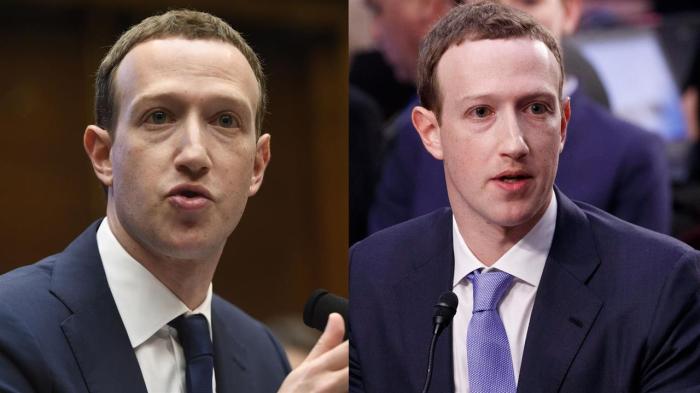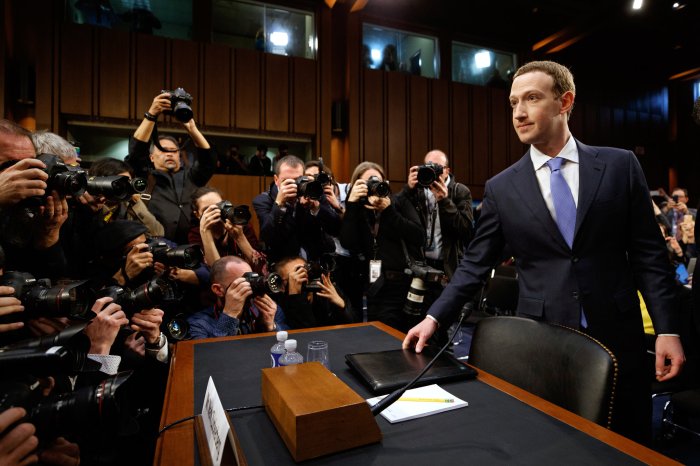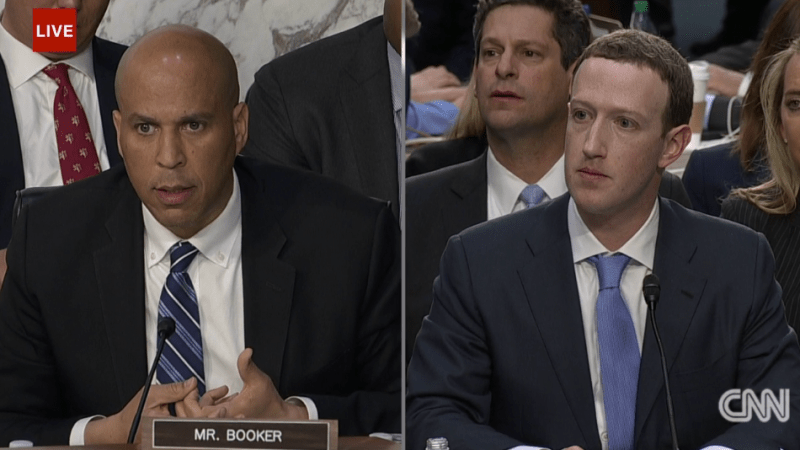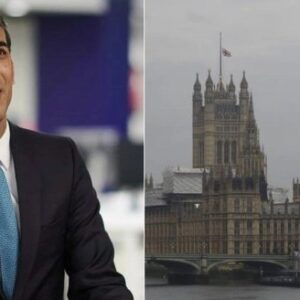Advertisement
Mark zuckerberg testify before congress data scandal – Mark Zuckerberg testifying before Congress over the Facebook data scandal? It was a spectacle, a whirlwind of finger-pointing, and a stark reminder of the power – and potential peril – of social media. Remember the Cambridge Analytica fallout? Yeah, that’s the heart of it. This wasn’t just some tech bro getting grilled; it was a public reckoning with the ethics of data collection, user privacy, and the very fabric of our digital lives. We’re diving deep into the testimonies, the fallout, and the lingering questions that still echo today.
From the initial shockwaves of the scandal to the long-term consequences for Facebook, Meta, and the broader tech landscape, we’ll unpack the key moments, the major players, and the lasting impact of this watershed moment. We’ll explore the legislative responses, the public’s reaction, and what it all means for our increasingly digital world. Buckle up, it’s a wild ride.
Zuckerberg’s Testimony Overview
Mark Zuckerberg’s appearances before Congress regarding Facebook’s data scandals represent a pivotal moment in the history of social media regulation. These testimonies weren’t just about technical details; they were a public reckoning with the power and responsibility of tech giants in the digital age. Each appearance saw Zuckerberg facing intense scrutiny, forcing him to defend Facebook’s practices and address growing concerns about privacy, misinformation, and political manipulation.
Chronological Summary of Zuckerberg’s Congressional Testimonies
Zuckerberg’s appearances before Congress regarding data scandals unfolded in a series of high-profile hearings. The events leading up to each testimony involved escalating public outrage and pressure from lawmakers. The main points of contention revolved around Facebook’s data handling practices, the Cambridge Analytica scandal, and the platform’s role in spreading misinformation and foreign interference in elections. Significant criticisms focused on Facebook’s lack of transparency, its inadequate data security measures, and its slow response to emerging threats.
The Cambridge Analytica Scandal Testimony (April 2018)
The Cambridge Analytica scandal, which broke in March 2018, directly led to Zuckerberg’s first major testimony before Congress. This scandal involved the unauthorized harvesting of personal data from millions of Facebook users by Cambridge Analytica, a political consulting firm. The testimony focused on Facebook’s role in allowing this data breach to occur, the company’s response to the situation, and the broader implications for user privacy. Key criticisms included Facebook’s inadequate oversight of third-party app developers, its slow reaction to the scandal, and its perceived lack of accountability. Zuckerberg faced intense questioning from both Republican and Democratic lawmakers, who expressed deep concerns about the misuse of user data and the potential for foreign interference in elections.
Subsequent Hearings and Testimonies
Following the Cambridge Analytica testimony, Zuckerberg continued to face scrutiny from Congress and other regulatory bodies. While not all hearings focused solely on data scandals, they frequently revisited the issues of data privacy, misinformation, and the platform’s responsibility in shaping public discourse. These subsequent appearances built upon the concerns raised in 2018, examining Facebook’s evolving policies and its ongoing efforts to address the issues. Recurring criticisms included the company’s continued struggles with combating misinformation, its difficulty in moderating content effectively, and its impact on political polarization. The hearings highlighted the ongoing debate surrounding the regulation of social media platforms and the need for greater transparency and accountability from tech giants.
Data Privacy Concerns Raised

Source: wsj.net
Mark Zuckerberg’s Capitol Hill grilling over the Facebook-Cambridge Analytica data scandal felt like a whole different era. It was a time of massive tech upheaval, mirroring the seismic shift happening in Southeast Asia, where, as reported in this article uber sells southeast asian business grab , Uber’s exit highlighted the cutthroat competition and rapid consolidation within the region’s tech landscape.
The Zuckerberg hearings served as a stark reminder of the power – and potential peril – wielded by these tech giants.
Zuckerberg’s congressional testimonies weren’t just about awkward silences and fidgeting; they unearthed a Pandora’s Box of data privacy concerns. The hearings shone a harsh spotlight on Facebook’s data handling practices, sparking widespread public debate and ultimately influencing global data protection legislation. The core issue wasn’t just about Facebook collecting data – it was about the scale, the lack of transparency, and the potential for misuse.
The Cambridge Analytica scandal, a pivotal moment in the timeline, dramatically highlighted the vulnerability of user data. This wasn’t a minor glitch; it involved the harvesting of personal information from millions of Facebook users without their informed consent. This data was then allegedly used to micro-target political advertising, raising serious concerns about the influence of social media on democratic processes. Similar scandals, though perhaps less publicized, further eroded public trust, painting a picture of a platform prioritizing profit over user privacy.
The Cambridge Analytica Scandal’s Impact
The Cambridge Analytica scandal wasn’t just a PR nightmare; it profoundly impacted user trust in Facebook. The revelation that user data had been harvested and potentially misused to manipulate political opinions sparked widespread outrage and fueled calls for greater regulation. This event acted as a catalyst, pushing the conversation about data privacy from the fringes to the forefront of public discourse. The subsequent drop in Facebook’s stock price served as a stark reminder of the economic consequences of failing to prioritize user trust and data security.
Legislative Responses to Data Privacy Concerns
The testimonies spurred significant legislative action globally. The General Data Protection Regulation (GDPR) in Europe, already in the works, gained further momentum and served as a model for other countries seeking to strengthen data protection laws. In the United States, while a single, comprehensive federal privacy law hasn’t emerged, various state-level initiatives and increased regulatory scrutiny of tech companies have been observed. These legislative efforts reflect a growing recognition of the need for stronger protections against data misuse and the importance of user consent in data collection practices.
Comparison of Data Privacy Regulations
| Regulation | Key Features | Focus | Impact on Facebook |
|---|---|---|---|
| GDPR (EU) | Data subject rights, consent requirements, data breach notification | Comprehensive data protection | Significant changes to data handling practices, increased transparency requirements |
| CCPA (California) | Consumer rights to access, delete, and opt-out of data sale | Consumer data privacy | Compliance efforts, adjustments to data collection and sharing practices |
| HIPAA (USA) | Protection of health information | Healthcare data privacy | Specific compliance requirements for health-related data handling |
| Proposed Federal Privacy Legislation (USA) | Varying proposals, often incorporating elements of GDPR and CCPA | Comprehensive national data protection | Potential for significant changes depending on the final legislation |
Facebook’s Response and Actions

Source: nyt.com
Following the intense scrutiny and public backlash after Zuckerberg’s congressional testimony, Facebook (now Meta) initiated a series of changes, ostensibly aimed at improving data privacy and user control. However, the effectiveness and sincerity of these actions remain subjects of ongoing debate, highlighting the complex relationship between Facebook’s business model and its commitment to user data protection. The company’s response was multifaceted, encompassing both technological upgrades and public relations efforts, but the question of whether these measures truly addressed the core concerns remains unanswered.
The changes implemented by Facebook post-testimony represent a complex mix of genuine improvements and strategic PR moves. While some alterations demonstrably enhanced user control over their data, others appeared more cosmetic, failing to address the fundamental issues underlying the data privacy concerns. Facebook’s business model, heavily reliant on targeted advertising fueled by extensive data collection, creates an inherent tension between profit maximization and user privacy. This tension makes assessing the true impact of their actions difficult, requiring a critical examination of both stated commitments and observable practices.
Facebook’s Claimed Improvements
The improvements Facebook claimed to have made after Zuckerberg’s testimony were extensive, encompassing various aspects of data handling and user control. It’s important to note, however, that many of these claims are self-reported and haven’t always been independently verified to the satisfaction of all stakeholders. The effectiveness of these changes also depends on user understanding and adoption, a factor often overlooked in assessing their impact.
- Enhanced Data Control Tools: Facebook claimed to have made it easier for users to access, download, and delete their data. This included clearer explanations of data usage and more intuitive control panels within the platform’s settings.
- Increased Transparency in Data Collection: The company stated that it improved the transparency of its data collection practices, providing users with more detailed information about how their data is used for advertising and other purposes. However, critics argue that the information provided remains complex and difficult for the average user to fully understand.
- Improved Data Security Measures: Facebook highlighted investments in advanced security technologies to protect user data from unauthorized access and breaches. This included enhanced encryption protocols and improved detection systems for malicious activities.
- Strengthened Data Privacy Policies: The company announced updates to its data privacy policies, aiming to better reflect its commitment to user data protection. However, the complexity and length of these policies often leave users struggling to fully comprehend the details.
Comparison of Stated Commitments and Actual Practices
A crucial aspect of evaluating Facebook’s response lies in comparing its stated commitments to its actual practices. While the company has publicly championed data privacy and user control, its business model fundamentally relies on extensive data collection and targeted advertising. This inherent conflict often leads to discrepancies between what Facebook promises and what it actually delivers. For instance, while the company emphasizes user control over data, the sheer volume and complexity of data collected, combined with the opaque nature of algorithms used for targeting, raise concerns about the true extent of user agency. Independent audits and investigations are crucial to determine the extent to which Facebook’s actions align with its stated commitments.
The Relationship Between Facebook’s Business Model and Data Privacy Concerns
Facebook’s core business model is inextricably linked to the data privacy concerns raised. The platform’s free services are funded through targeted advertising, which necessitates the extensive collection and analysis of user data. This creates a structural tension: the more data Facebook collects, the more effective its advertising becomes, but the greater the potential for privacy violations. The company’s attempts to balance these competing interests have been met with criticism, with many arguing that its profit-driven model inherently undermines its commitment to user privacy. This necessitates a broader discussion about the ethical implications of data-driven business models and the need for robust regulatory frameworks to protect user rights.
Public Perception and Impact: Mark Zuckerberg Testify Before Congress Data Scandal
Zuckerberg’s congressional testimonies, following the Cambridge Analytica scandal, sparked a firestorm of public reaction. The hearings weren’t just a spectacle; they represented a pivotal moment in the relationship between Big Tech and the public, dramatically shifting perceptions of Facebook’s power and responsibility. The fallout extended far beyond the immediate headlines, impacting Facebook’s financial standing and reshaping the global conversation around data privacy.
The public response was a complex mix of outrage, skepticism, and disillusionment. Many felt betrayed by Facebook’s handling of user data, expressing concerns about the lack of transparency and control over their personal information. The seemingly evasive answers provided by Zuckerberg during the hearings further fueled public distrust, painting a picture of a company prioritizing profit over user well-being. Conversely, some defended Facebook, arguing that the scandal was overblown or that similar practices were common across the tech industry. This divided public opinion created a challenging landscape for Facebook to navigate.
Facebook’s Stock Price Fluctuations, Mark zuckerberg testify before congress data scandal
The Cambridge Analytica scandal and subsequent congressional testimonies had a significant impact on Facebook’s stock price. While the initial drop was substantial, reflecting investor concerns about potential regulatory repercussions and reputational damage, the stock eventually recovered to some degree. However, the volatility underscored the market’s sensitivity to public perception and regulatory scrutiny surrounding data privacy. The incident served as a stark reminder that a company’s financial health is intrinsically linked to its ethical conduct and public trust. This period highlighted the immediate and tangible financial consequences of failing to adequately address data privacy concerns. For example, the stock price experienced a notable dip immediately following the initial news reports of the scandal and further declines after Zuckerberg’s testimony, demonstrating the market’s immediate reaction to negative publicity and concerns about the company’s future.
Erosion of Public Trust in Social Media
The long-term effects of the scandal extended beyond Facebook’s immediate financial performance. The Cambridge Analytica affair eroded public trust not only in Facebook but also in the broader social media ecosystem. The revelation that user data could be harvested and used for political manipulation fueled anxieties about the potential for misuse of personal information and raised questions about the accountability of social media companies. This widespread distrust contributed to a growing skepticism towards social media platforms, prompting increased calls for stricter regulations and greater transparency in data handling practices. The subsequent rise of privacy-focused alternatives and a greater awareness among users about their online privacy reflect this shift in public sentiment. The long-term impact is a heightened awareness and demand for better data protection, shaping the landscape for future social media platforms and regulatory frameworks.
Influence on Public Discourse
The Zuckerberg testimonies significantly influenced the public discourse surrounding data privacy and social media. The hearings brought the issue of data privacy into the mainstream, prompting widespread discussions about the ethical implications of data collection and usage by tech companies. This heightened public awareness led to increased calls for stronger data protection laws, such as GDPR in Europe and similar regulations in other countries. The testimonies also spurred a broader conversation about the role and responsibility of social media companies in society, prompting debates about content moderation, misinformation, and the potential impact of social media on democratic processes. The event acted as a catalyst, accelerating the ongoing global conversation around digital rights and online safety, and influencing policy changes in various jurisdictions.
Political and Legal Ramifications
The Facebook-Cambridge Analytica scandal, brought to the forefront by Zuckerberg’s congressional testimony, unleashed a tsunami of political and legal repercussions that continue to shape the digital landscape. The hearings weren’t just a moment of public grilling; they marked a turning point, triggering a cascade of investigations, legislative actions, and shifting public opinion that significantly impacted Facebook’s operations and the broader tech industry.
The scandal’s political ramifications were far-reaching. It fueled existing anxieties about data privacy, foreign interference in elections, and the power wielded by massive tech companies. Politicians across the political spectrum seized on the issue, using it to highlight concerns about regulatory gaps and the need for stronger oversight of social media platforms. This led to increased scrutiny of Facebook’s business practices and fueled calls for stricter data protection laws globally. The event also significantly damaged Facebook’s reputation, impacting its public image and investor confidence.
Political Consequences for Facebook/Meta
The political fallout from the testimony was immediate and severe. Facebook faced intense criticism from lawmakers, regulators, and the public, leading to numerous investigations and hearings. The scandal became a major talking point in political debates, impacting election campaigns and shaping public policy discussions about data privacy and the power of tech giants. The loss of public trust translated into decreased user engagement for some and fueled the growth of competing platforms. The negative publicity also impacted Facebook’s stock price, although the company’s overall market dominance has remained largely unchallenged. The incident highlighted the vulnerability of social media companies to political pressure and the potential for regulatory intervention to curb their power. Several countries strengthened their data privacy laws in the wake of the scandal, pushing Facebook to adapt its global data handling practices.
Legal Actions Against Facebook/Meta
Following Zuckerberg’s testimony, Facebook faced a multitude of legal challenges. The Federal Trade Commission (FTC) launched a major investigation into Facebook’s privacy practices, ultimately resulting in a record-breaking $5 billion fine in 2019, the largest ever levied against a tech company at the time. This settlement addressed allegations that Facebook misled users about its handling of their data. In addition to the FTC fine, Facebook faced numerous class-action lawsuits from users who claimed their data was misused. These lawsuits alleged violations of privacy laws and sought compensation for the harm caused by the data breaches. While the outcomes of these lawsuits varied, they added significantly to Facebook’s legal expenses and further damaged its reputation. The legal battles underscored the high stakes involved in data privacy violations and the potential for significant financial penalties for companies that fail to adequately protect user information.
Impact on Future Regulation of Social Media Companies
Zuckerberg’s testimony served as a catalyst for increased regulatory scrutiny of social media companies worldwide. The scandal highlighted the need for stronger data protection laws, greater transparency in data collection and usage practices, and more robust mechanisms for holding tech companies accountable for data breaches. The testimony spurred legislative efforts in several countries to implement stricter regulations on data privacy, algorithmic transparency, and content moderation. The General Data Protection Regulation (GDPR) in Europe, already in effect, gained increased prominence, serving as a model for other jurisdictions. In the United States, although comprehensive federal legislation has been slow to materialize, the event fueled discussions about potential reforms to existing laws like the Federal Trade Commission Act. The ongoing debate surrounding Section 230 of the Communications Decency Act, which provides legal protection to online platforms, has also been directly influenced by the events surrounding the Cambridge Analytica scandal. The political and legal landscape for social media companies has irrevocably shifted, demanding increased accountability and stricter adherence to data privacy standards.
Timeline of Key Political and Legal Events
A concise timeline illustrating key events following the testimonies is crucial for understanding the evolving narrative. The following timeline is not exhaustive, but it highlights pivotal moments:
| Date | Event |
|---|---|
| March 2018 | The Cambridge Analytica scandal breaks. |
| April 2018 | Zuckerberg testifies before Congress. |
| July 2019 | FTC fines Facebook $5 billion for privacy violations. |
| Ongoing | Various lawsuits and regulatory investigations continue. |
Illustrative Examples of Data Misuse

Source: cnn.com
Zuckerberg’s testimony before Congress shone a harsh light on the ways Facebook’s data practices, or lack thereof, had impacted millions. The hearings revealed not just systemic failures, but also specific instances of data misuse that caused significant harm to individuals and society at large. These examples, categorized below, paint a grim picture of the consequences of unchecked data collection and inadequate safeguards.
Cambridge Analytica Scandal
The Cambridge Analytica scandal stands as a prime example of large-scale data misuse. This firm harvested the personal data of millions of Facebook users without their explicit consent. This data, encompassing likes, posts, and other personal information, was then used to create detailed psychographic profiles, employed to micro-target political advertising during the 2016 US Presidential election and potentially other political campaigns globally. The impact was far-reaching. Not only were individual users’ privacy violated, but there were serious concerns raised about the potential manipulation of voter behavior through targeted disinformation campaigns. The emotional toll on affected individuals was substantial, ranging from feelings of betrayal and anger to concerns about the impact on their political choices and the integrity of democratic processes. The scale of the breach and its potential impact on democratic elections sparked widespread outrage and calls for greater regulation of data practices.
Data Sharing with Third-Party Apps
Facebook’s extensive data sharing practices with third-party apps were another major point of contention. Numerous apps, some with questionable privacy policies, gained access to vast amounts of user data through Facebook’s platform. This data was often used for purposes beyond what users would reasonably expect or consent to. For instance, some apps used data to create detailed user profiles for targeted advertising, while others engaged in practices that directly violated users’ privacy. The consequences ranged from unwanted advertising and targeted manipulation to instances where sensitive personal information was improperly shared or sold. The emotional response from affected users varied, but generally included feelings of invasion of privacy, mistrust, and a sense of helplessness in controlling their own data.
Improper Use of User Location Data
The misuse of user location data highlighted the vulnerability of seemingly innocuous information. While location data might seem less sensitive than other personal information, its aggregation and analysis can reveal highly personal details about users’ lives, habits, and routines. Facebook’s practices regarding the collection and use of location data raised concerns about the potential for stalking, targeted harassment, and the erosion of individual autonomy. The feeling of being constantly tracked and monitored led to anxiety and a sense of unease among users, adding to the overall erosion of trust in the platform.
Last Recap
Zuckerberg’s congressional testimonies weren’t just a series of hearings; they were a turning point. They exposed the vulnerabilities of our data, the complexities of social media’s business models, and the urgent need for stronger privacy protections. While Facebook/Meta implemented some changes, the long-term implications of the scandal continue to ripple through the tech world and beyond. The debate about data privacy, ethical tech practices, and the responsibilities of social media giants is far from over. This saga serves as a cautionary tale – a reminder that the digital age demands accountability, transparency, and a critical eye towards the power wielded by the tech titans.


